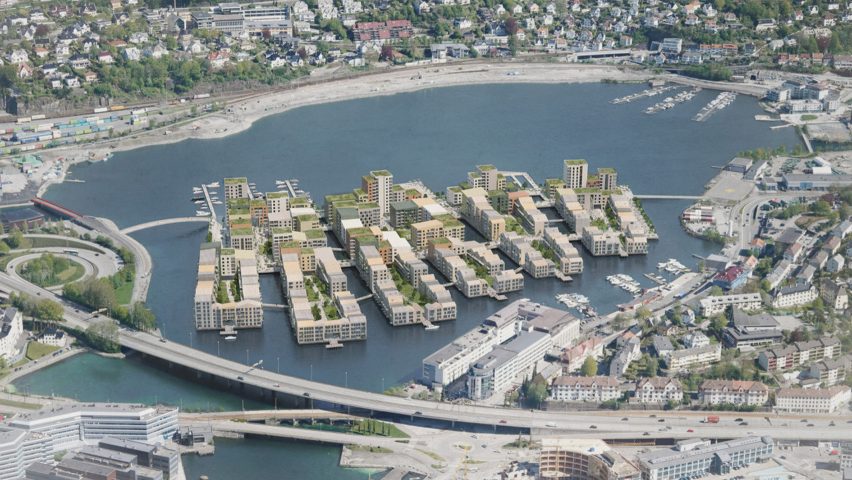
Waugh Thistleton designs eco-village in a lake to reinvigorate central Bergen
Over a thousand houses built on the Store Lungegårdsvann lake will form the heart of Trenezia, a sustainable village masterplanned by Waugh Thistleton for Bergen, Norway.
London architecture studio Waugh Thistleton designed Trenezia in a bid to create a carbon neutral residential and cultural hub for the city that would attract locals to remain within central Bergen.
"Given the scale of the development, to achieve carbon neutrality in terms of operational energy on a net annual basis will be a challenge," senior associate Kirsten Haggart told Dezeen.
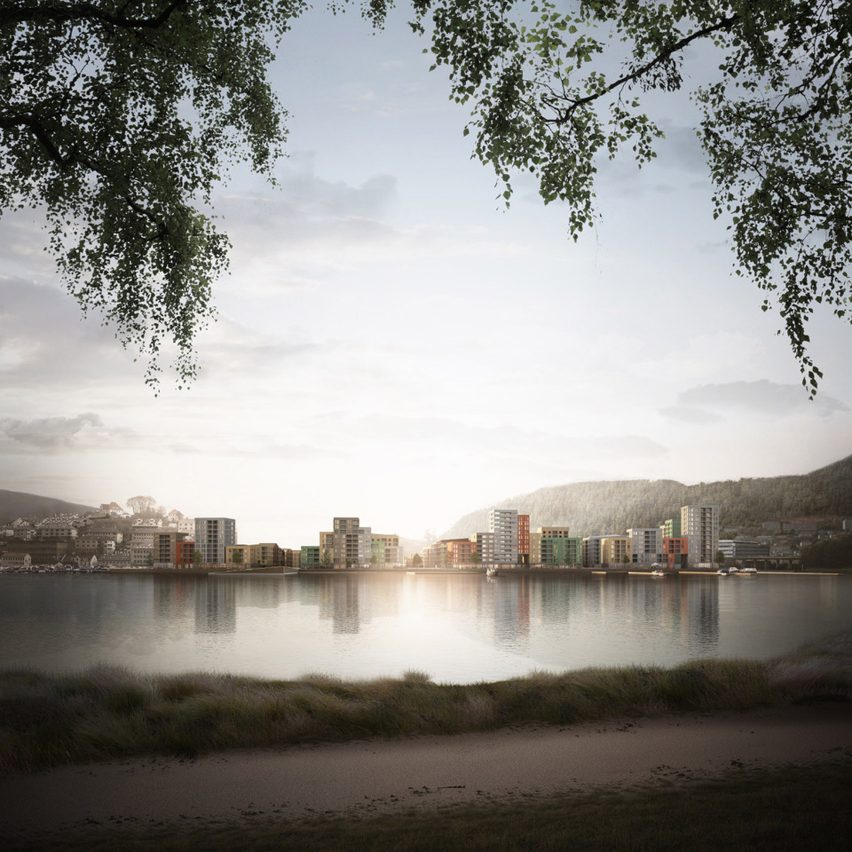
The masterplan, designed for BOB Housing Association, imagines 1,500 homes positioned on the lake in the city centre. These will be built on a series of artificial islands connected to the shore by a giant, publicly-accessible boardwalk.
Once built, the boardwalk spanning the lake will form the "central spine" of Trenezia. There will be floating structures along its length, including a swimming pool, performance space and moorings, intended to encourage community activity and interaction.
It will also form a link between Bergen's old town on the west of the lake and the city's arts hub on the east, which will be complete with a new beach.
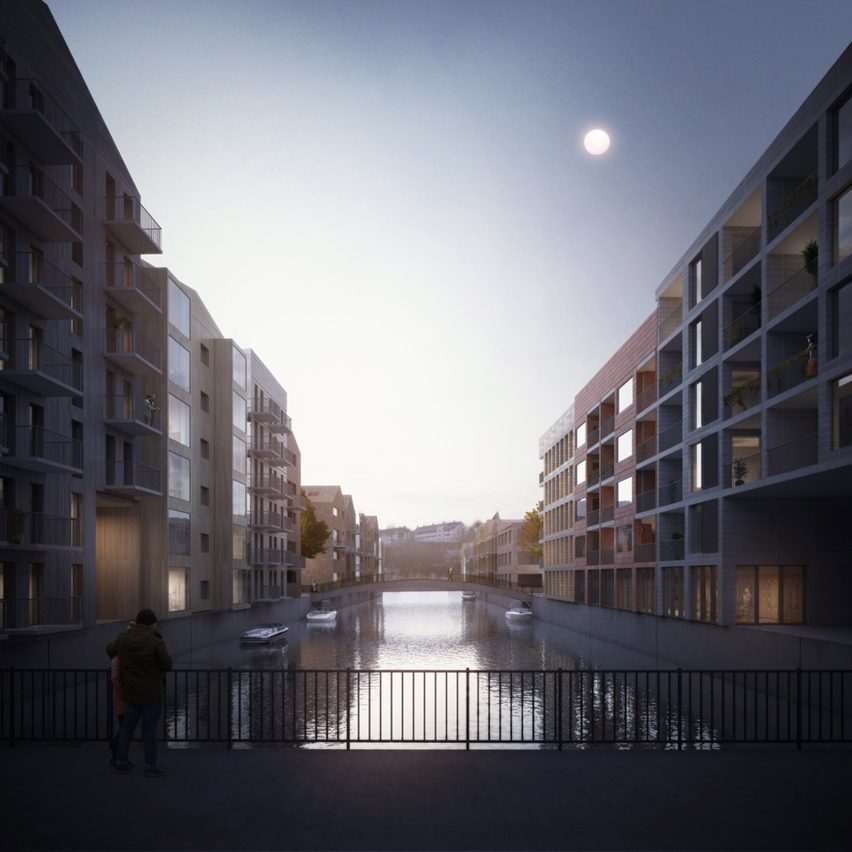
Waugh Thistleton's priority for the scheme is that it is ecologically friendly, with low energy and water consumption and minimal waste generation.
"Firstly, the demand from the buildings and facilities will be minimised through a highly efficient building envelope and water and energy saving technologies," explained Haggart.
"Secondly, the scheme will generate energy from clean on-site renewable sources and export more energy than it consumes, thereby effectively offsetting its carbon emissions."
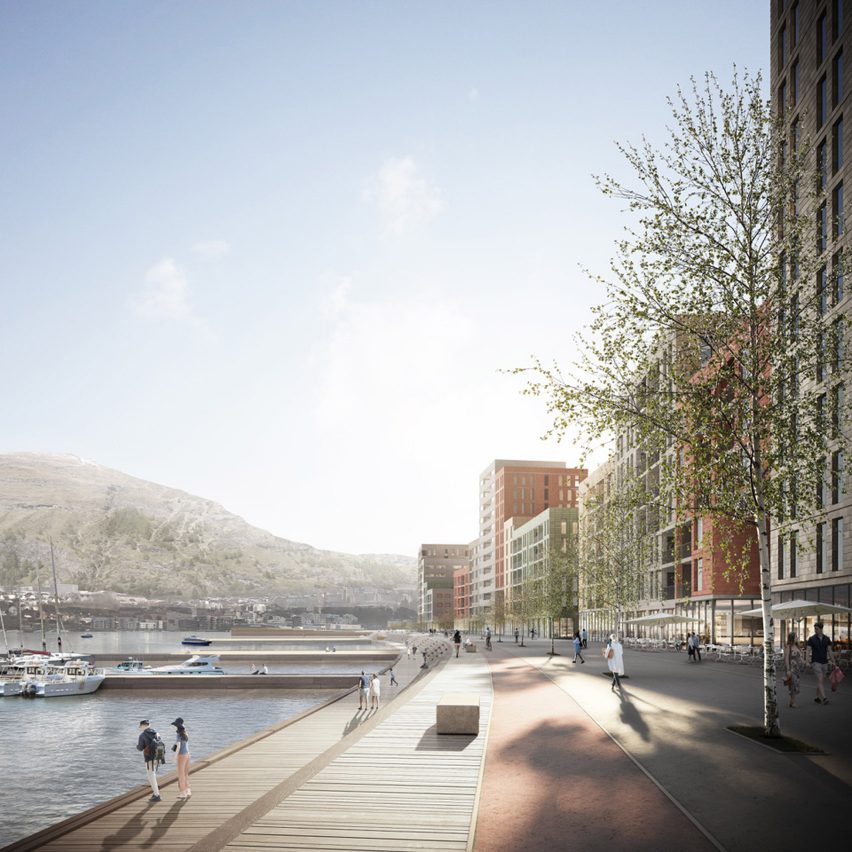
All the houses will be made from timber, while the foundations will be filled with locally-sourced material from current infrastructure projects in the area.
There are also plans to create on-site energy centre to help offset carbon emissions, which will use technologies like biomass and seawater heat pumps.
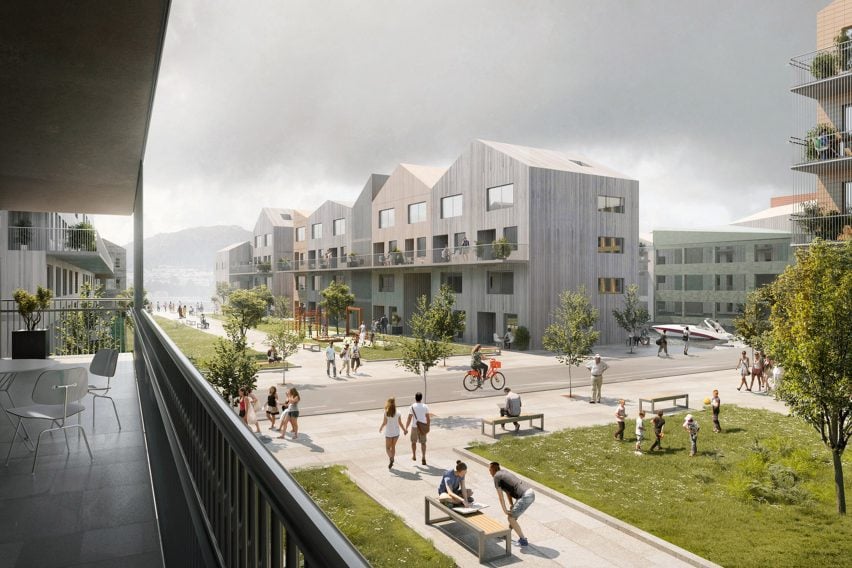
Given the limited daylight hours in Bergen's winter, each cluster of housing in the Trenezia masterplan will be split by a "solar corridor", intended to maximise the natural light in the homes.
This will also be helped by the sizes of the houses, which Waugh Thistleton has designed to increase in height from south to north of the site to reduce the amount of shadow they create.
The smaller buildings within each cluster will comprise small, private family properties, while the taller blocks will host homes more suited to individuals, couples or students.
Throughout the housing, the number windows, access points, materials and colours will also vary, "to create a palette of materials that create variation and identity for those living there, and yet are harmonious and coherent as a whole".
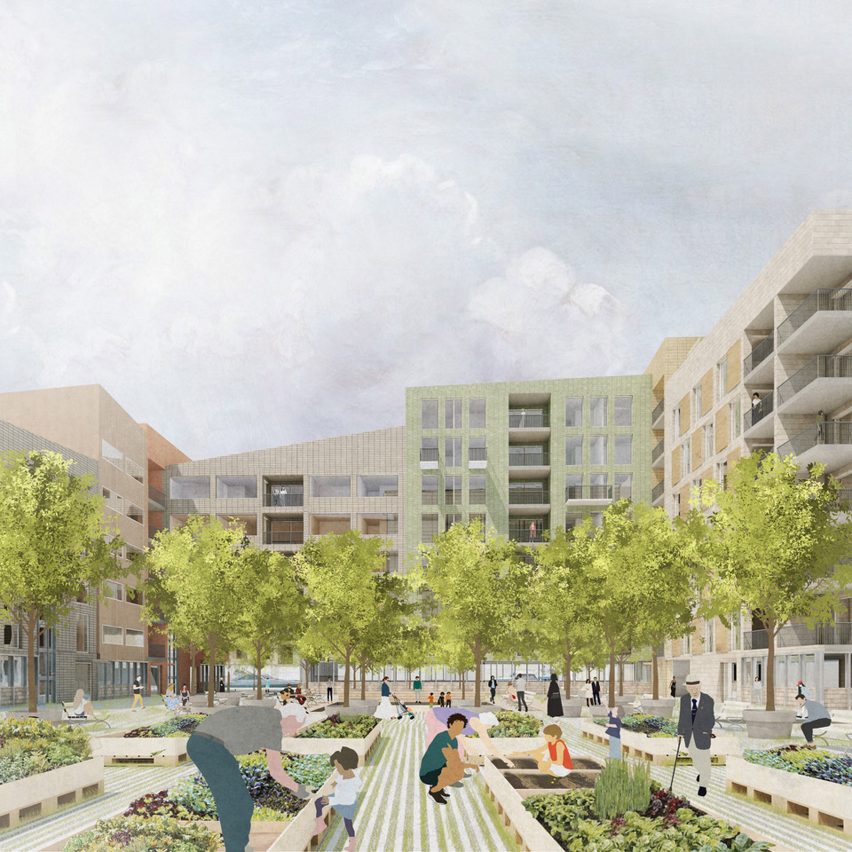
At the centre of each cluster, Waugh Thistleton will create shared outdoor spaces, which will vary in character depending on the type of building it sits next to.
Between the larger buildings, including an elderly centre and nursery, "civic squares" will be built to encourage interaction between different groups
Meanwhile, the smaller buildings will surrounded linear, domestic-scale courtyards. Houses will also each have front gardens complete with trees and shrubs, planting beds, play spaces and seating.
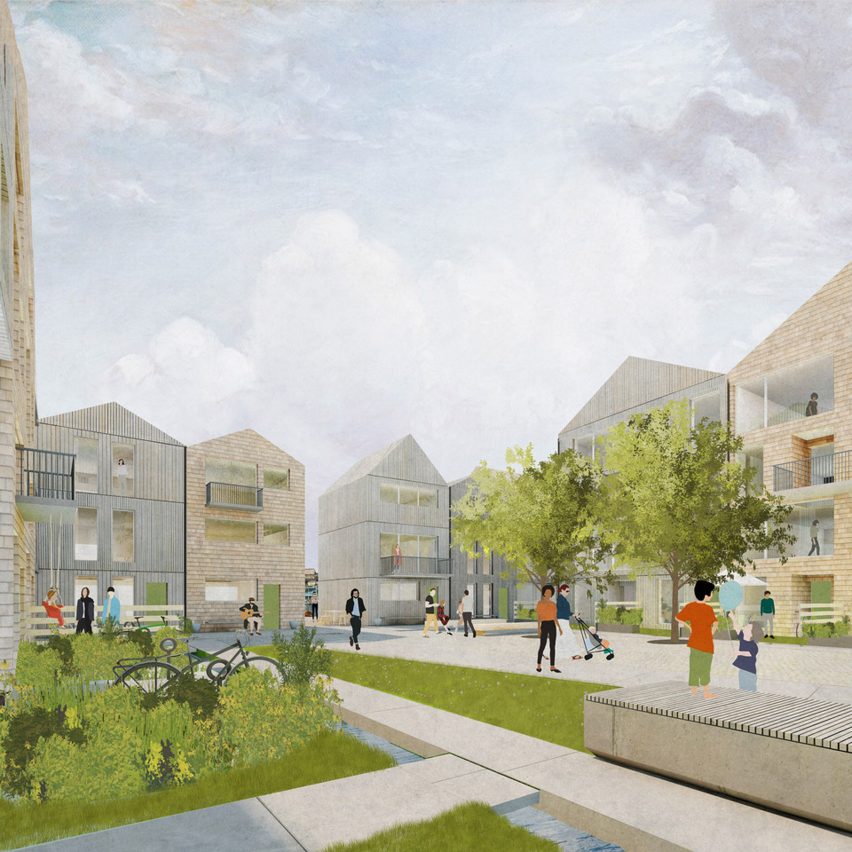
Each building and courtyard throughout the scheme will be accessible to visitors and residents by bridges and pathways that also offer long vistas of the lake and surrounding mountains.
"Trenezia is a world class demonstration of how to build in a truly sustainable way both environmentally and socially, representing a microcosm of the vision for Bergen as a leading sustainable capital in the world," concluded the studio.
Waugh Thistleton is an architecture studio based in Shoreditch, London, founded by Andrew Waugh and Anthony Thistleton in 1997.
Other recently completed projects by the studio include a modular maze installation in V&A's Sackler Courtyard, cemetery buildings with rammed-earth walls and its collaboration with Japanese architect Shigeru Ban to build a five-storey house beside London's River Thames.
Project credits:
Lead architect: Waugh Thistleton Architects
Local architect: Artec
Client: BOB Housing Association
Sustainability strategy: Urban System Design
Structural engineer: Degree of Freedom
Landscape/urban design: East